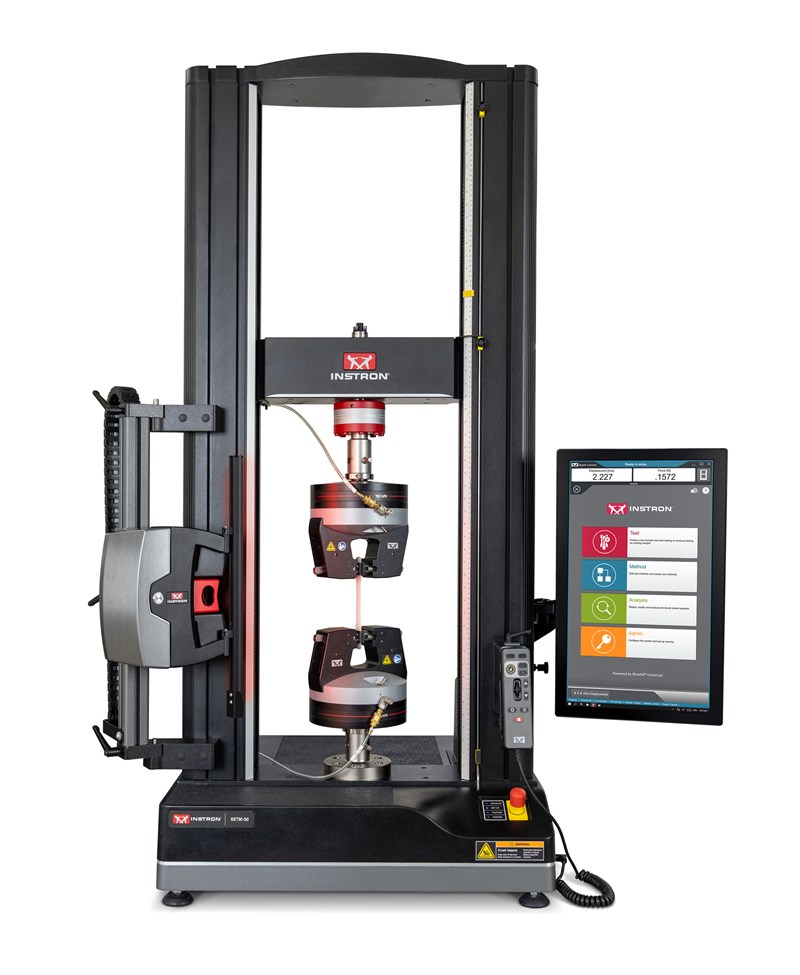A competitive edge for our customers
Research & development
Investing in the future: Delivering even better sealing solutions to our customers
We are updated on the latest technology, pushing materials and constructions to the next level. Seal Engineering explores and develops new sealing solutions, in our own research department to provide a competitive edge to our customers.
With more advanced technology, we can develop products that are more precise, more robust, and better suited to the challenges our customers face.
That means shorter delivery times, higher performance, and even greater reliability. At the same time, we’re strengthening our position in the market. This move puts us ahead of the curve and reinforces our commitment to being a leading player in the sealing technology business.
We’re excited to announce some major additions to our in-house testing capabilities
Universal testing systems, or UTMs, are versatile machines that measure a material's mechanical properties by applying loads. They are called "universal" because they can perform a wide range of tests, such as tensile, compression, and bending, on various materials, including metals, plastics, and composites
Acquisition of the Instron 68TM-30 Series universal testing system, featuring the AVE3 Advanced Video Extensometer, an environmental chamber for non-ambient testing, and a variety of specialized grips and accessories:
- Advanced Video Extensometer 3
- Environmental chamber: ambient to +350°C, with optional LN2 -100°C
- Axial testing tension and compression, load cell range 2N-30kN
- Pneumatic and mechanical grips
- Cobot-ready for scaled up testing
- Standards: ISO37, ISO527, ASTM D412, ASTM D638
This investment reinforces our position at the forefront of sealing innovation - where rigorous testing meets uncompromising performance.
Take a closer look at some of our lab-equipment
Other testing capabilities in-house
- Shore Hardness Tester, Bareiss digi test II
- Digital Optical Microscope, Keyence VHX-7000 (20x - 6000x)
- Stereo microscopes (with digital cameras and measurement software)
- Test fixtures for material and seal characterization (e.g. compression set, molds, etc.)
- Various ovens (for ageing, compatibility, drying)
- Sample preparation tools (CNC, molding press, cutting dies, etc.)
- Density meter
- Laboratory glassware and accessories
- Data acquisition software
- Infrared Spectrometer, FTIR Bruker Alpha II
- Goniometer (MSA)
and more!
Expanding our horizons: Significant investment in growth and sustainability
PS: Don’t miss the story behind our investments in new production facilities. Designed with sustainability, improved working conditions, and long-term ambitions in mind – it’s a key part of how we’re preparing for the future.
Highly skilled team ready to assist
We pride ourselves on having a highly competent and well-coordinated team of experts ready to assist with the most demanding technical challenges. Our professionals bring deep expertise, synergy, and dedication to every project, ensuring effective and innovative solutions. Don't let complex technical hurdles slow you down.
Contact us today to discuss how our expert team can provide the robust support and advanced solutions you need to succeed.





















